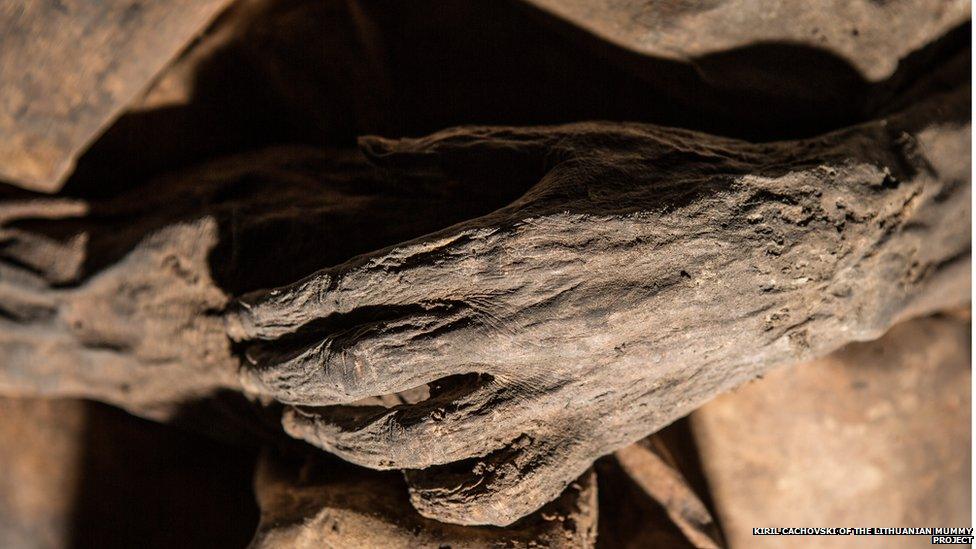History of smallpox called into question
- Published

A child mummy from the 17th century
The idea that smallpox is a very ancient human disease has been called into question.
Scientists say the deadly pathogen appears to have been around for hundreds rather than thousands of years.
Viral DNA from the mummified remains of a child living during the 17th Century - at the time of an epidemic - casts doubt on historical records.
Smallpox was thought to date back millennia.
However, past descriptions have been based on physical signs, such as a pustular rash, which can be confused with other diseases.
''We managed to sequence the complete genome of the virus that causes smallpox, that's called variola virus,'' Dr Edward Holmes of the University of Sydney told BBC News.
''It's the oldest human virus ever sequenced.''
Evolutionary 'clock'
The researchers obtained permission to study samples of the pathogen from a child interred in the crypt of a church in Vilnius, Lithuania.
Radiocarbon dating shows the child lived about 1650 AD, at a time when smallpox was common in Europe.
''This mummy allows us to calibrate very nicely the clock of evolution - it's a fossil, effectively,'' said Dr Holmes.
''This fossil tells us that in fact evolutionary history is much more recent than we thought before - it's actually only hundreds of years rather than thousands of years.''
However, it is not possible to determine where smallpox came from, what the ancestor of the virus was, and exactly when it first appeared in humans, he added.
Smallpox facts
One of the most devastating diseases known to humankind
The last known naturally-occurring case was in Somalia in 1977
Some stocks of the live virus remain at two secure laboratories in the US and Russia
Source: WHO
The child lived at a time when smallpox was spreading around the world, driven by global exploration and colonisation.
This was before the development of vaccination, which began after the famous experiments of Edward Jenner in 1796.
''What we can show is that in fact most of the evolution of smallpox that we can measure occurred after 1796,'' said Dr Holmes.
''It looks like it is a more recent evolution than we ever thought before.''
The disease was officially eradicated in 1980, following a global immunisation campaign.
Smallpox remains the only human disease eradicated by vaccination.
Prof Jonathan Ball of Nottingham University, who was not connected with the study, said it shows ''pretty conclusively'' that smallpox viruses present in human outbreaks for which we have samples share a common ancestor that probably dates back to the late 16th to mid-17th centuries.
However, he said, the question remains as to whether outbreaks occurred before that date, caused by strains that were never seen again.
''Only access to, and analysis of, even older samples will answer that; but these are difficult to find and difficult to work with, so perhaps we will never know.''
The research is published in the journal, Current Biology.
Follow Helen on Twitter., external